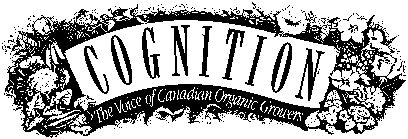

Cognition Index | Virtual Library
| Magazine Rack
Search
| Join the Ecological Solutions Roundtable
by Robin Guard
Many years ago, when I went to Sunday School, I learned that among the sinners you should learn to watch out for were Scribes and Pharisees. I never did find out what a Pharisee was, but my teacher did explain that a Scribe was someone who, in a society where everyone else was illiterate, was prepared for a fee to write a letter under your dictation. In other words, a Scribe converted your ideas into an incomprehensible form for transmission. (Today we use lawyers to do this.) I still don’t know why the innocent profession of Scribing got its practitioners lumped in with fornicators and the ungodly.
So I was reflecting that now we are all educated and literate, the idea of needing Scribes to send messages to each other seems laughable. But then I noticed the product which is the most universal money-maker in most of the stores in my village. The drugstore has two aisles devoted to it, except for one corner where they have a small quantity of stationery. Even the hardware store, the corner store and the supermarket offer a few. They are Greeting Cards.
Greeting Cards are folded pieces of paper carrying a picture and a message that can range from the amusing to the sick-making. They cost the manufacturer fifteen cents each to produce and you can buy one for $3.95. The mark-up accounts for their popularity among store owners. People buy them because they do not want the trouble of writing down what they feel about their loved ones, so they pay hard cash for someone else to express their feelings for them. In other words, they employ Scribes. So civilization evolves onward and upward.
I should mention at this point that the second biggest industry in my community, after Greeting Cards, is Gifts. A Gift is defined as any article that you wouldn’t dream of buying for yourself but is suitable for handing to someone else under circumstances that prevent him from saying "What am I supposed to do with this crap?" Gifts are generally terminally cute and have lace around the edges. Stop at any garage sale during the summer and you will find tables loaded with Gifts.
This desire on the part of the populace to pay hard cash for what they want instead of taking the trouble to do it themselves is at the heart of what is wrong with the organic movement in Canada. Most enquiries about organic food are "Where can I buy?" instead of "How can I grow?" People want to hand over money for someone else to do the job.
There are signs that things are changing. The COG chapter that I belong to decided last winter to organize a spring course in organic gardening. Five evening sessions for $45 included a year’s membership to COG. We did all we could to advertise the event, but then we sat around worrying whether we should cancel if only three people showed up. What happened was that we had to turn people away.
An organic gardening course is a brilliant idea, first conceived by COG Ottawa and something every chapter should copy. (Ottawa will send advice on how to get organized.) It does so many good things simultaneously: it boosts COG membership; it encourages people to grow their own, which gives them exercise as well as better food; and it gives us enthusiasts the chance to explain in detail why organic is so important. We are enormously encouraged by our success, which has literally doubled our chapter membership. Most importantly, it has brought into our circle a new pool of people from which we can draw volunteers to serve on the executive, saving us from the horror of volunteer burn-out, the nemesis of so many clubs. The response proved that there are plenty of people out there worried about their food but needing a bit of help to get started.
An initiative like this gives you the feeling that maybe ordinary people working together can make a difference in a world where it seems that big business writes the agenda for our lives. We may sign petitions saying we don’t want rBGH in our milk but we suspect that it will come anyway. Yet there is lots of good news as well. Organic milk is now on the market and all the dairy products that come with it, including butter, cheese and thick, thick yogurt. You can be assured that these products contain no miracles of modern science, just milk from cows that are fed and cared for in a civilized manner. Try not to buy too much of this organic product, though, for permission to market it was only given for a trial period and if it gets too popular, the Board may not be happy. Remember that those of us who want pure food are a "niche market", and we’ll get into trouble if we don’t stay in our niche.
Another splendid piece of news is that the clowns who wanted to ban cheese made from raw milk have backed off. I feel so happy about this that I think I’d like to express my thanks to them. Maybe I’ll go down to the store and see if I can find a suitable Greeting Card.
Copyright © 1996.
Robin GuardReprinted with permission. All rights reserved.
Info Request | Services | Become EAP Member | Site Map
Give us your comments about the EAP site
Ecological Agriculture Projects, McGill University (Macdonald
Campus)
Ste-Anne-de-Bellevue, QC, H9X 3V9 Canada
Telephone:
(514)-398-7771
Fax:
(514)-398-7621
Email: info@eap.mcgill.ca
To report problems or otherwise comment on the structure of this site, send mail to the Webmaster